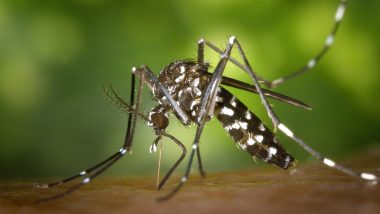Alarm bells have been sounded in South Asia after a case of monkeypox was reported in Singapore. On May 9, the Singapore Ministry of Health told the media that a Nigerian national who came to the city had been carrying the viral disease. Monkeypox is quite similar to smallpox and is transmitted mainly through rodents and primates. According to The Hindu, the man is suspected to have eaten bushmeat (meat of wild animals) before he came to Singapore. Here’s an upshot about the viral illness, including its symptoms, causes, treatment and preventive measures. Monkey Fever On The Rise: What is Kyasanur Forest Disease (KFD)?
What is Monkeypox?
Monkeypox is a disease similar to smallpox and belongs to the Poxviridae family of viruses. The difference is that smallpox has been declared eradicated, but the human monkeypox virus is still endemic in Central and West Africa, according to the World Health Organization. The disease is called monkeypox since it was discovered in monkeys first in 1958.
Monkeypox is common in rainforests of Africa where humans routinely come in contact with animals carrying the virus. But there’s no evidence of person-to-person transmission.
The Symptoms of Monkeypox
Symptoms of monkeypox last from 14 to 21 days. The common signs of monkeypox include:
• Fever
• Throbbing headache
• Swelling of the joints
• Back pain, muscle pain
• Fatigue
• Malaise
• Skin rashes that start on the face which later spread to the body
• Lesions on the skin
• Blisters and pustules which become crusty.
How is Monkeypox Diagnosed?
To diagnose the illness as smallpox, the diagnosis should rule out of illnesses that cause rashes like smallpox, chickenpox, measles, bacterial skin infections, scabies, syphilis and medicine-induced allergies. Monkeypox is diagnosed in specialised labs that use a number of different tests. The skin lesions, swabs and crusts are stored in a sterile tube in a cold environment.
How is Monkeypox Treated?
There’s no treatment or vaccines yet for monkeypox. Outbreaks can, however, be controlled. Vaccines for smallpox have been proven to be 85 percent effective in preventing monkeypox. But after smallpox was eradicated in the 1980s, the vaccines were also discontinued.
Since most people are already vaccinated against smallpox, they may face a milder form of monkeypox if infected.
How is Monkeypox Prevented?
Monkeypox is caused mainly due to contact with infected rodents and monkeys. So avoiding contact is the first step in preventing monkeypox. Monkeypox and Its Symptoms: UK Sees Its First Confirmed Case of the Rare Viral Infection.
The virus also spreads through bushmeat and undercooked meat, so eating such meats should be avoided completely.
Close physical contact with people who are infected should be avoided unless protective gear such as gloves, masks etc. are worn.
Healthcare workers who routinely handle the infected should also take care to avoid any direct blood exposure. They should get themselves immunised against smallpox before they handle patients afflicted with monkeypox.
(The above story first appeared on LatestLY on Jun 04, 2019 12:09 PM IST. For more news and updates on politics, world, sports, entertainment and lifestyle, log on to our website latestly.com).













 Quickly
Quickly




















